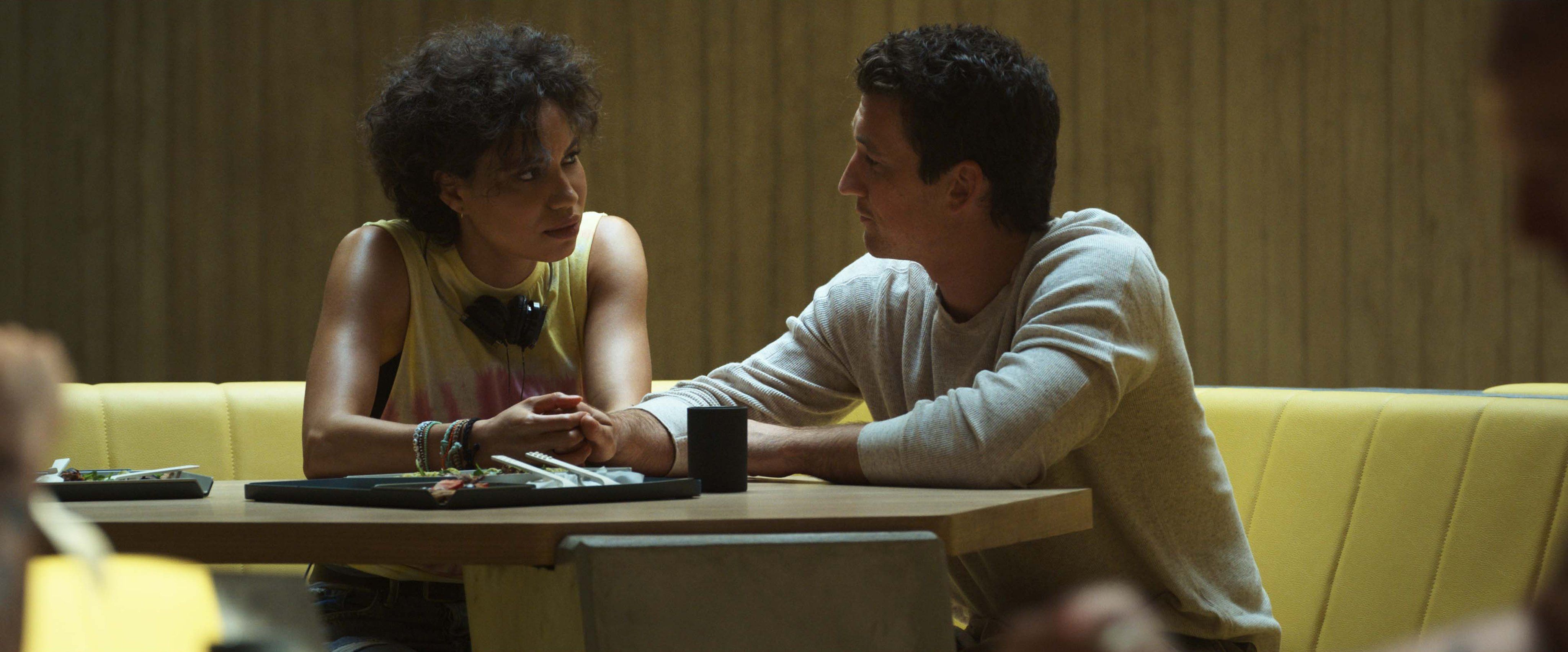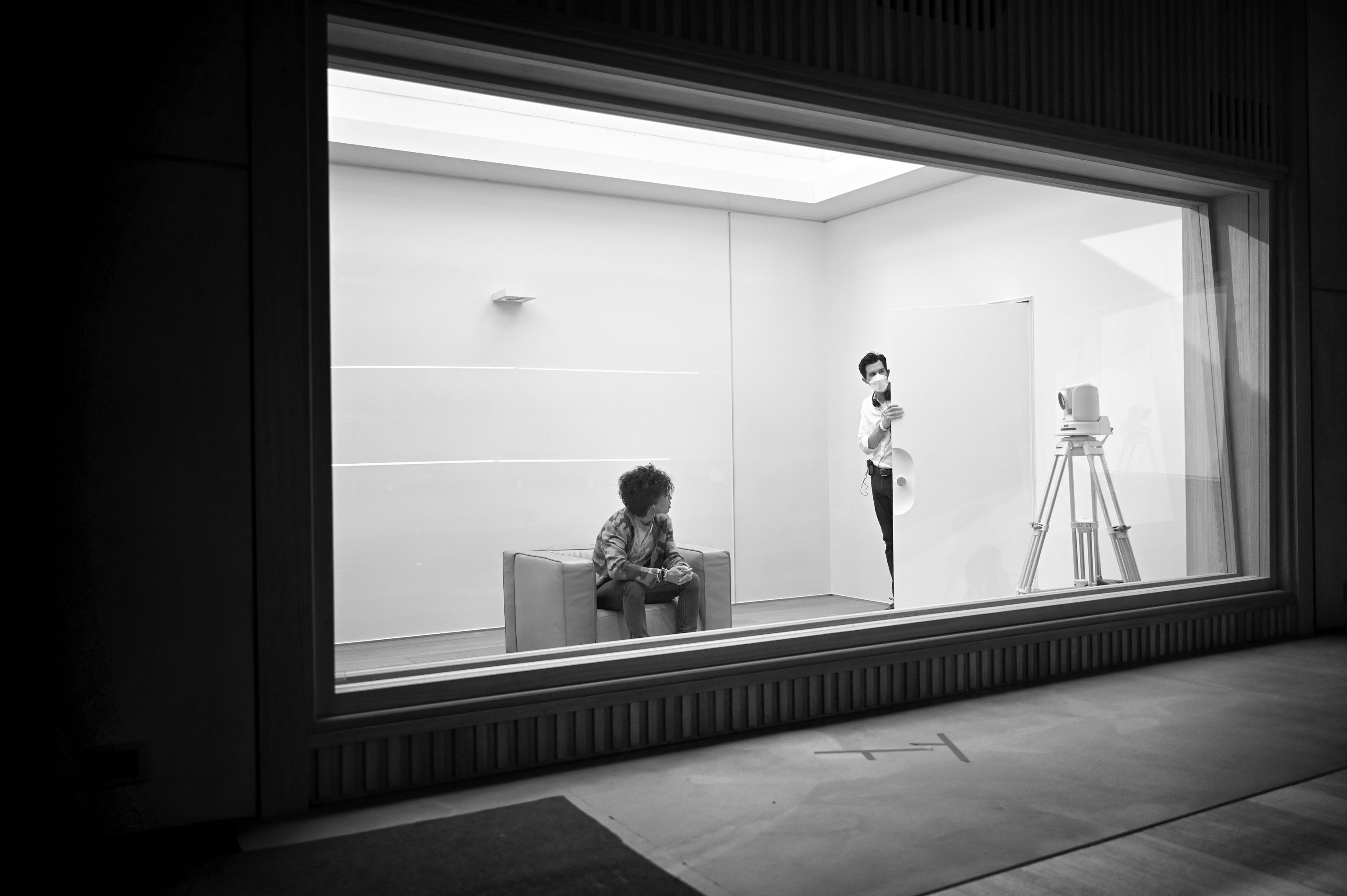Netflix’s Spiderhead is an entertaining thrill, but it’s also mighty disturbing to consider the likelihood of such technology existing. In fact, director Joseph Kosinski even insisted, “I think everything in this film could be happening today.”
The film’s title refers to a state-of-the-art penitently run by Chris Hemsworth’s Steve Abnesti. Abnesti is busy experimenting with mind-altering drugs by using prison inmates as test subjects. If they agree to have a drug-administering device surgically implanted on their back and be pumped full of Abnesti’s concoctions on a regular basis, these inmates can say goodbye to the bars and live a freer lifestyle. But the question is, how much freedom do they really have when Abnesti can alter their emotions and behavior at the push of a button?
With the film now available to stream on Netflix, I got the chance to chat with Jurnee Smollett about the development of her Spiderhead character, Lizzy, one of Abnesti’s inmates and test subjects. In the press notes, Kosinski mentions, “The role of Lizzy wasn’t as big on the page as it ended up being in the final film,” so I asked Smollett what changed and, it turns out, it’s something rather big. She revealed, “The secret that she carries was not originally in the script.”
Even though that significant part of Lizzy’s backstory wasn’t in the earliest draft Smollett read, she said there was still more than enough to the story and its themes to spark interest:
“I read the script and I was so blown away by the themes explored within it. Honestly, I thought of the Milgram Experiment initially when I read it. I had read about the Milgram Experiment when I was in high school, you know? And it was always something that stuck with me, this disturbing element of society in which one person can manipulate another person to get them to inflict harm on another person, right?”
The film’s connection to that very real study that determined that people will execute unjust orders under the right circumstances is what created that initial intrigue, but it was Smollett’s conversation with Kosinski that really sealed the deal for her — and also heavily strengthened Lizzy as a character:
“Then when I did a Zoom with Joseph Kosinski, our director — and this man’s a visionary! You know? He’s a real force, and the Zoom kind of turned into a brainstorming session about ways in which he and I would kind of want to bring Lizzy to life. And we started talking about this idea of, ‘Well, how do people weaponize shame?’ Essentially that’s what Abnesti’s doing. And then we started really kind of digging deeper into what that would look like for someone like Lizzy. And we talked about several different things that could be her secret initially.”
This type of collaboration isn’t limited to the development and pre-production stages for Smollett. She’s got a penchant for talking things through to strengthen the material on set, too.
“I’m just a collaborator. One of the things I love so much about creating a film or a TV show or any sort of narrative is you get to bounce things off of each other and collaborate and go, ‘Hm, but would she pick that up?’ Or, ‘Would he do that?’ And like, ‘If I do this, what kind of reaction does that give you?’ It’s a constant action, reaction, right? Beat by beat, how are we progressing this further? I think one thing that was so beautiful is Joe, as the director, was so encouraging of that with me. It’s not something I take for granted because it’s not something you’re always afforded, is that level of collaborative spirit.”
Eager to hear more from Smollett about her experience making Spiderhead? Check out our full conversation in the video interview at the top of this article!











































































